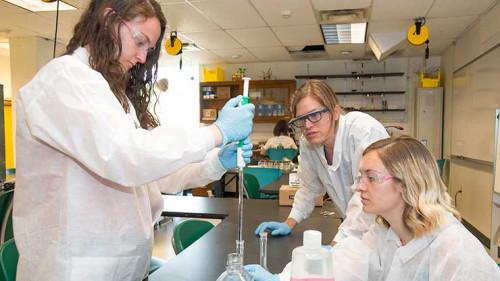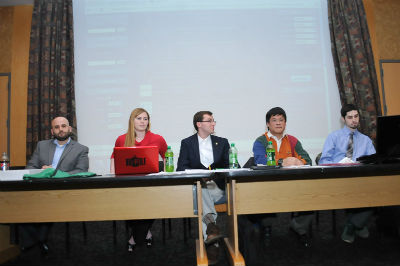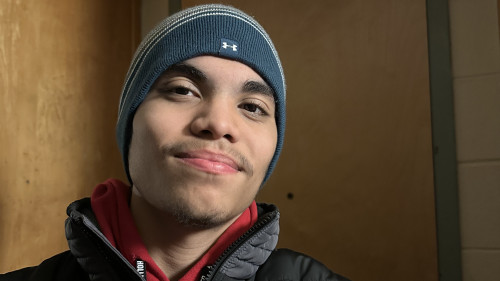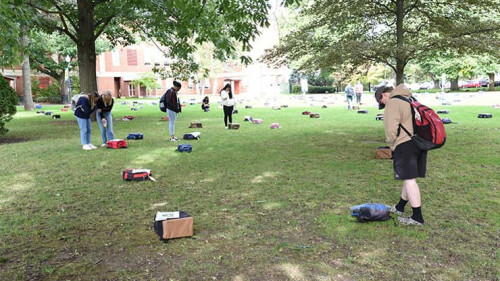

By Mary Barrett '14
From Twitter and Facebook to Instagram and Vine, social media platforms are a growing part of our world. People use them to connect with each other and to keep up on the pressing issues of the day. Along with being sources of entertainment, many people use these platforms as their primary sources of information. That’s why social media can be powerful in politics.
Siena College’s Political Science Society hosted a panel discussion called “Social Media and Democracy: The New Era of the Citizen Elect” to highlight the impact that social media has on a person’s levels of political and social participation and to encourage civic engagement within the Siena College community.
“We are delighted to be addressing this critical issue,” said Leonard Cutler, Ph.D., political science department chair and director of the Center for the Study of Government and Politics.
United States Chamber of Commerce Eastern Region Congressional and Public Affairs Manager Zack Hutchins, Associate Professor of Computer Science Darren Lim, Ph.D., Honors Fellow Cameron P. Paleologopoulos ’14, Political Science Society President Andrew T. Lang ’15 and Political Science Society Research and Social Media Coordinator Mary-Kate Browne ’16 discussed their experiences with social media as a revolutionary political tool -- they were able to share their thoughts in more than 140 characters.
Still, the use of social media wasn’t left out of the panel discussion. Students were able to share their opinions and interact with the panelists by tweeting their questions and comments to the Twitter handle @SienaPSS. This approach gave students from all majors the chance to learn about the ways in which social media impacts politics while actually participating in the event both in person and through the technology at their fingertips. The event was also live streamed via Twitter by Associate Professor of Political Science Laurie Naranch, Ph.D.’s Contemporary United States Politics class.
“I really liked the interactive style,” said psychology major Victoria Becotte ’17. “I liked the idea of live-tweeting. I thought it was really engaging.”
Lang and Browne shared results from a poll that compared the social media and civic engagement statistics of the Siena community to the results taken by the Pew Research Center, an impartial fact tank that informs the public about issues, attitudes and trends. The results showed that Siena students who took the poll discuss political issues online more frequently than people polled by Pew. Siena students also showed more active participation within the community, attending local political meetings on town or school affairs, attending speeches and rallies, being active members of groups that try to influence the public or even simply signing petitions.
The interest in these political issues was evident during the discussions that arose at the panel. Overall, the crowd agreed that social media platforms can present problems but when used in the right manner, tools such as Facebook, Twitter and LinkedIn can promote knowledge.

